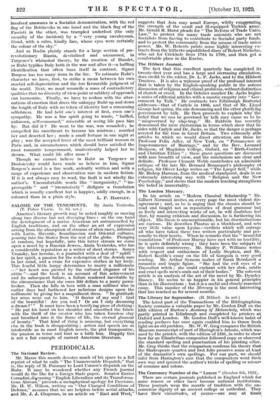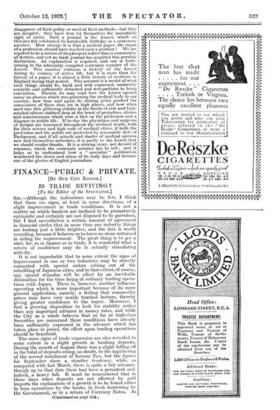The Centenary Number of the " Lancet " (October 6th,
1923.
There are certain journals published in England which for some reason or other have become national institutions. These journals wear the mantle of tradition with the un- conscious dignity of an ancient college or cathedral. They have their vicissitudes, of course—one may at times: disapprove of their policy or cavil at their methods—but they are accepted ; they have won for themselves the immutable right of entrée. Such a journal is the Lancet, which on October 6th celebrated its hundredth birthday in a centenary number. How strange it is that a medical paper, the organ of a profession, should have reached such a position ! We are reputed to be a nation of shopkeepers rather than a community of doctors, and yet no trade journal has acquired this peculiar distinction. An explanation is required, and one is forth- coming in the admirably compiled centenary number of the Lancet. This number contains a history of the Lancet during its century • of active life, but it is more than the history of a paper, it is almost a little history of medicine in England during that period. This account is a model of what such things should be, lucid and well expressed, eminently 'readable and sufficiently detached and non-partisan to bring conviction. Therein we may read how the Lancet opened many an abscess which was poisoning the medical body in our 'country, how time and again its shining point pricked the consciences of those that sat in high places, and how when need was this glittering stiletto in the hands of able and high- 'minded editors stabbed deep at the heart of prejudices, abuses and anachronisms which were a blot on the profession and a disgrace to public life. If to-day the physicians and surgeons of Britain are honoured throughout the civilised world, both for their science and high code of medical ethics, if both the profession and the public are protected by reasonable Acts of Parliament, and if all schools and shades of medical opinion now find themselves articulate, it is partly to the Lancet that 'We should render thanks. It is a stirring story, not devoid of romance, which the centenary number has to tell ; and it helps us to understand how a " specialist " publication weathered the storm and stress of its early days and became one of the glories of English journalism.



























































 Previous page
Previous page